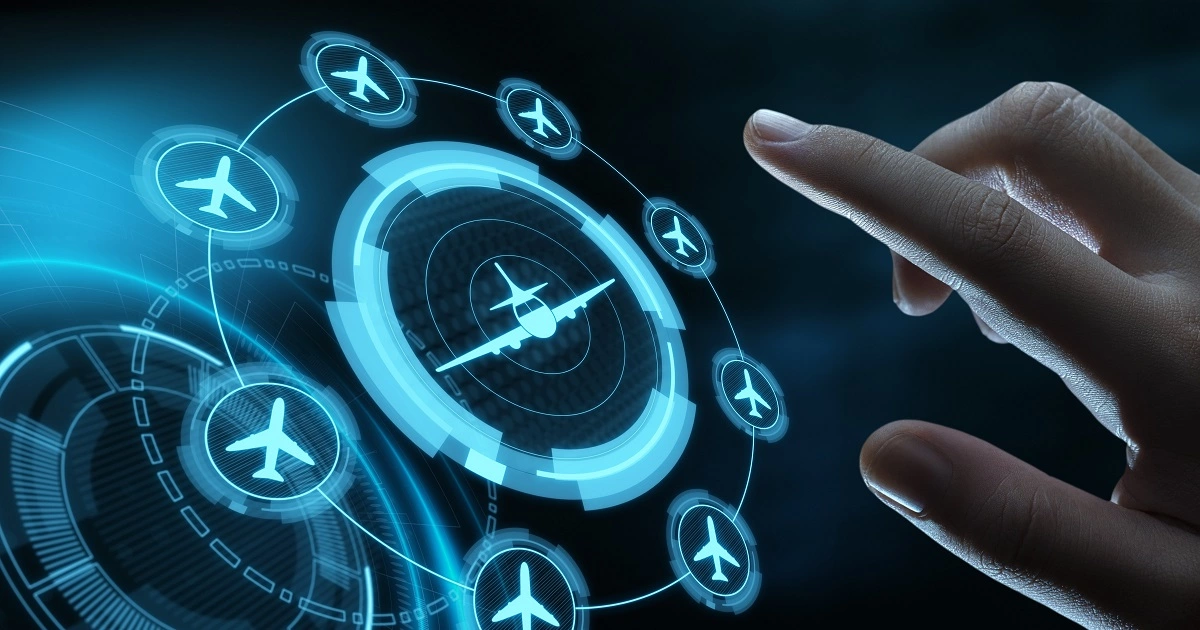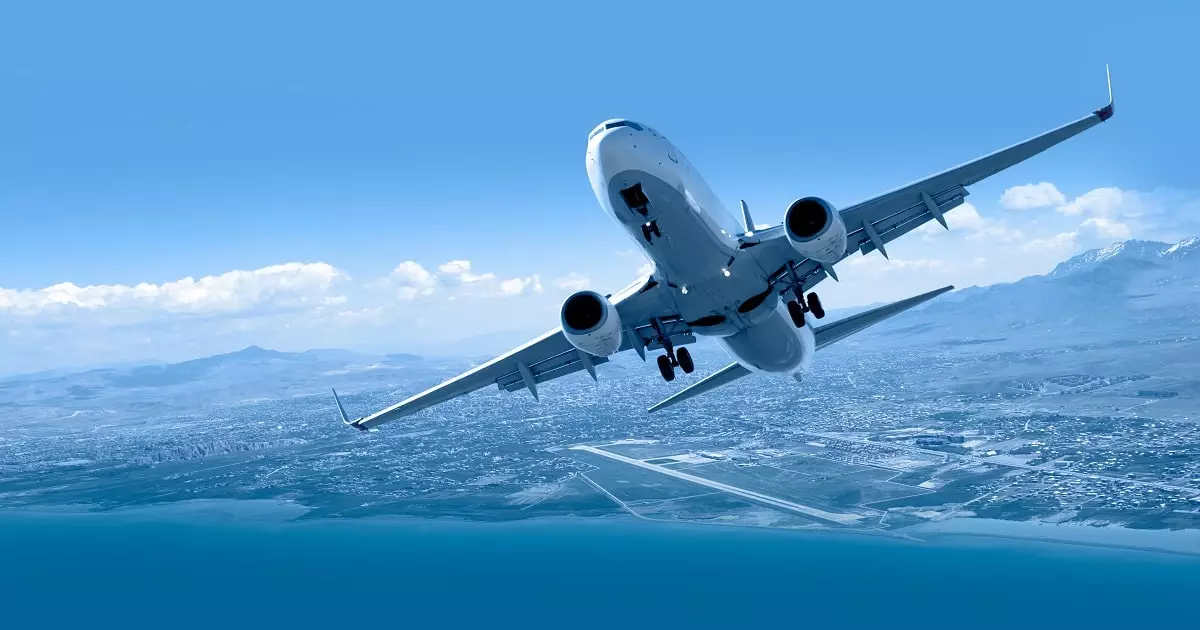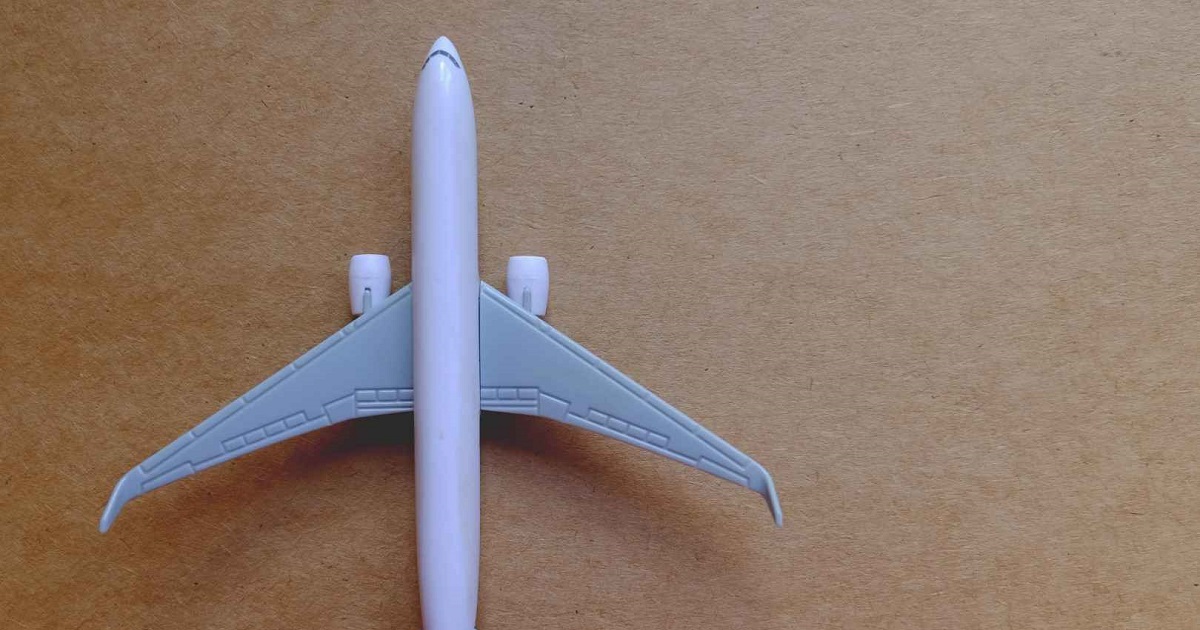
Aviation Technology
Article | July 26, 2022
A New System That Aims to Create Carbon-Neutral Aviation
Scientists have achieved an amazing breakthrough in the development of carbon-neutral fuel for the aviation industry. An aviation fuel production system that uses water, sunlight, and carbon dioxide has been put into action. Its design was published on July 20th, 2022, in the journal Joule. The dream of achieving carbon-free aviation could become a reality with this development.
“We are the first to demonstrate the entire thermochemical process chain from water and CO2 to kerosene in a fully-integrated solar tower system.” - Aldo Steinfeld, Professor, Study Corresponding Author, ETH Zurich
The aviation industry accounts for approximately 5% of the global anthropogenic emissions that contribute to global climate change. The industry heavily relies on kerosene, commonly known as jet fuel, a liquid hydrocarbon fuel derived from crude oil. There are no clean options to power commercial flights on a global scale at the moment.
Production of Synthetic Kerosene
This breakthrough, with the help of solar energy, makes it possible to produce synthetic kerosene from water and carbon dioxide instead of crude oil. The amount of CO2 emitted during kerosene combustion in a jet engine equals what is consumed during its production in the solar plant. It is what makes the fuel carbon neutral, especially if the CO2 in the air is captured and directly used as an ingredient, which could be possible in the near future.
As part of the European Union's SUN-to-LIQUID project, Steinfeld and his colleagues put forward a system that uses solar power to generate drop-in fuels—synthetic alternatives to fossil-derived fuels like kerosene and diesel. Solar-produced kerosene is consistent with the current aviation infrastructure for allocation, fuel storage, and use in jet engines. It can also combine with fossil-derived kerosene, according to Steinfeld.
High Hopes for the Future
Steinfeld and his team began scaling the construction of a solar fuel manufacturing plant at the IMDEA Energy Institute in Spain half a decade ago. The plant has 169 sun-tracking reflective panels that redirect and concentrate solar radiation into a tower-mounted solar reactor. This concentrated solar energy then powers redox reaction cycles in the reactor’s porous ceria structure, which is not absorbed but can be reused. It transforms the water and carbon dioxide into syngas, a customized mixture of hydrogen and carbon monoxide. This syngas is then injected into a gas-to-liquid converter and is finally converted into liquid hydrocarbon fuels such as kerosene and diesel. Steinfeld and his team are working on amping up the reactor’s efficiency from the current 4% to more than 15%.
Read More

Design and Engineering
Article | January 7, 2022
The aviation industry has allowed people to connect the world in unimaginable ways. Due to this, it has contributed massively to social and economic development globally.
However, the aviation sector produces nearly 1.8% of annual carbon emissions. It is almost half of the total growth in carbon dioxide emissions in the last twenty years due to the expansion of flights, increasing routes, and airline sizes.
In the loop, the commercial aviation sector has also been affected by climate change. The change is due to increased noise levels, air pollution, and waste production.
According to the International Energy Agency (IEA), the industry recorded 2.8% of global CO2 emissions in 2019. But now, the industry has pledged to be carbon neutral by 2050 through a focus on a critical low-carbon strategy, says IATA. By looking at this futuristic development, airline businesses are becoming more and more optimistic.
The Action Plan
The aviation industry has taken steps to reduce rising carbon emissions. The industry had framed targets that included carbon-neutral growth before the pandemic. But the pandemic compelled the industry to make some critical decisions. One of them is to fasten the action plan for low-carbon development.
McKinsey recently studied the industry’s emissions. According to the report, the industry's aviation emissions would be reduced by 18 to 35 percent by 2030. However, as the aviation industry’s growth is recorded from Asia, including India, China, and Southeast Asia, decarbonization can only work if airlines from these nations actively participate in the development.
“For aviation, zero-carbon is a bold, audacious commitment. But it is also necessary.”
-IATA Director General Willie Walsh
Airlines and other businesses are under pressure to make rapid progress towards lower emissions. It is because breakthrough technology like hydrogen-powered planes has started manufacturing.
For example, British Airways, Delta Air Lines, Inc., and United Airlines Holding Inc. have already made net-zero commitments by introducing hydrogen-powered planes. Similarly, JetBlue Airways Corp has set a target of 2040 to introduce low-carbon planes in no time.
So, by looking at above comitments, how will aviation progress in terms of low-carbon development? What are those fundamental ways that’ll guide the industry to see a sustainable future in real life?
4 Ways Aviation will Look Forward to Reducing Carbon Emissions
Green Fuel
Aviation considers green fuel as one of the quickest paths to low carbon development. Green fuel can be a game-changer in lessening carbon emission impacts. But, furthermore, it can lead to drastic climate change. Green fuel, also known as sustainable aviation fuel (SAF), is made from renewable sources such as plants or waste.
As per IATA, SAF can cut carbon emissions by nearly 80%.
But specific concerns like cost and availability are equally essential to think about. For example, the United States and other countries consider subsidies to decrease prices and increase supplies. They are practicing this due to limited availability. Also, some airlines are blending small amounts into the fuel they buy for their aircraft.
Other concerns, such as planes running properly on pure SAF, are also highlighted. In addition, flight engines based on petroleum fuel rely on their oily qualities to lubricate parts and function appropriately. So, it's unclear if green fuels offer that amount of strength in their engines to fly a flight.
Despite so many heated concerns (that are valid), the industry still looks good as Boeing (BA.N) studies the above issue. It has even committed to ensuring its planes are certified for 100% SAF by 2030.
242
Lower Carbon Technologies
Technological improvements to lower carbon emissions include retrofitting existing aircraft, adopting the latest fuel-efficient aircraft, retiring old aircraft, and others.
Several ongoing electric or hybrid-electric aircraft technology projects are in the pipeline. They are being identified to enter the industry between 2022-2030. In contrast, some of them are already in service.
Developments in Infrastructure
The International Civil Aviation Organisation (ICAO) has created plans to reduce fuel burn and greenhouse gas emissions (GHGs). The plans have been forwarded to optimize communication, navigation, surveillance (CNS), and air transport management (ATM) regarding zero-carbon development.
Apart from this, airlines are also working to align emission cuts with investments. Consumption of fuel usually covers 20-30% of operational costs. It is one of the highest costs of an airline business. So now airlines are considering adopting fuel-efficient flying and airport operations.
Collaborations
Today, aviation needs more stakeholders for a sustainable future. They can only increase the efficiencies and development of SAF.
Stakeholders from technology providers, oil companies, and energy production could drive demand and help bridge the cost gap. For instance, airlines commit to buying SAF at a particular price or at a different price than traditional fuel jets. These factors could eliminate market risks for fuel suppliers.
Next, airlines can work with B2B customers willing to pay for the decarbonization initiative. For example, airlines could use loyalty-program rewards as incentives for every customer to choose airlines that use SAF. Collaborations like these can help the industry accelerate its low carbon emission initiatives.
These Top Airlines Commit to Using New Technologies
Aviation industry leaders aim for 30% of the aircraft to operate with the help of new technologies by 2030. They strongly support the introduction of hydrogen and electric-powered planes to the market in order to reduce the industry's carbon footprint.
So, let’s see the airlines and their commitment to creating a sustainable aviation future.
Air New Zealand
Air New Zealand’s initiatives such as True Target Zero accelerate the adoption of zero-emission aircraft worldwide. Air New Zealand is delighted to work with other industry leaders working towards net-zero goals.
“Air New Zealand pledges to put low carbon solutions in place for all our smaller domestic and regional flights in the future. However, we know that the drive to decarbonize the aviation industry is impossible for one airline to tackle alone. Rather it’s a joint venture, and it's all about joining hands together.”
-David Morgan, Chief Operational Integrity & Safety Officer, Air New Zealand
Mokulele Airlines and Southern Airways
Mokulele Airlines, the largest intra-state carrier in America, has already worked for many years as a maven to bring electrification to its air transportation system.
“We are satisfied to join the World Economic Forum in seeking a global public commitment to promoting sustainable air travel.”
-Stan Little, Chairman & CEO, Mokulele Airlines and Southern Airways
Braathens Regional Airlines
The airline has the ambition to make its flights fossil-free by 2030. The airline has included electric planes, and with its partnership with True Zero Aviation, it is taking steps to accelerate towards actual low carbon emissions.
Can Aviation Make a Difference in the New Path of Development?
There are a lot of positive aviation stories from all over the globe. However, aviation also has some barriers to the new path of low-carbon development. Nevertheless, aviation can undoubtedly make a difference by introducing technologies, implementing result-driven strategies, implementing the right tools, and many more.
But from the customers' perspective, choosing to fly less can be another good reason to reduce an individual’s carbon pollution. The reduction can be up to 50% each year. So even avoiding long-distance flight travel could make a significant difference to aviation.
Business travelers could adopt or choose to use virtual meeting technology. These could be other crucial factors limiting the carbon footprint in the atmosphere.
Whatever you choose to opt for, it is high time to contribute to a more sustainable aviation sector for the future.
Frequently Asked Questions
How can airlines reduce their carbon footprint?
Airlines can introduce more efficient aircraft. Efficiency in technological aspects, reduce flight delays, and increase the use of sustainable lower-carbon or alternative fuels. Also, investment plays a vital role here. They can invest in emissions initiatives and promote low-carbon travel.
How can an airline achieve its carbon-neutral goals?
An airline can explore hybrid and electric aircraft technology to reach carbon-neutral goals, reduce carbon emissions using SAF, and embrace fewer flight routes (distance).
Do aircraft harm the atmosphere?
Aircraft create very polluting elements and are highly challenging means of transport. Indeed, air traffic represents less than 2%-3% of the global CO2 emissions, yet it transmits direct CO2 emissions than cars on roads.
Read More

Defense and Space
Article | June 8, 2022
Although airlines only contribute to 2% of global emissions today, research indicates that this number could rise if air travel continues to grow. As such, airlines need to adapt and find new ways to become more sustainable. Successful implementation of eco-conscious strategies will see carriers achieve higher profits and maintain the trust of customers.
SimpliFlying has a long history of helping airlines craft the future of travel and we believe that addressing climate change is essential to rebuilding trust in the aviation industry.
Read More

Business Aviation
Article | August 26, 2021
As 2021 is a few months away from its end and is the beginning of a new year, it is hopeful that it will bring more positiveness for airline businesses. But what the industry has ahead? How will the new landscape of technology strategies in airline businesses look?
Or say, what will be the platforms for novel technology strategies in the aviation industry in the future?
Let’s have a quick read in the next!
What Airline Technology Strategies Will Look Like?
As you know, the airline industry saw a lot of disruption in 2020. But the circumstance also paved the way for promising and powerful new technologies.
Airline businesses are now turning the tech trends to their advantage. In this way, they can get a handful of opportunities to streamline operations. They could do this because the landscape of technologies is reshaping aviation.
For example, IATA recently calculated that the airline's revenue worldwidewould be more than half of what it was in 2019. That means the industry will witness a massive change due to emerging tech stacks. Its rising importance is influencing market leaders to make more informed decisions today. This is why it is critical to imply technology strategies in your business.
Thus, the focus is on the clients' strategic choices and investments. It will now depend on the implications of technology strategies.
How will some of the applied proactive technologies in business processes look like in the new normal?
This blog groups some of the newer technologies for the new normal in aviation. Explore them and take inspiration from the potential of technologies to revive your business and drive growth.
5 Tech Strategies to Reshape Airline Industry
Machine Learning with AI
Before the pandemic, the airline industry displayed an exceptional commitment to the potential of AI. Like, you must have seen the adoption of chatbots to communicate and other ways to improve operations.
Now, the usage of AI is soared, and its application is more profitable than before. The platform analyses a faster deployment of millions of operational data.
Mechanization
Mechanization technology in the airline industry is gaining thrust. Due to the rapid developments and advancements, several airline businesses are implementing it. As tools are becoming smarter, businesses will soon have completely automated operations. Automation will ease all the workloads, reduce manual intervention and errors to a high accuracy rate.
Real-Time Information Technology
Real-time information technology is a significant technological aviation strategy. It has the potential of improving airlines’ operation efficiency with the help of customized software usage.
Your business can drive growth by implementing custom software applications. But, as you know, to deliver customized and personalized solutions, it is essential to understand clients’ expectations and preferences. So, how is this technology going to take you through it? Let’s understand in the following ways:
Personalized solution: Custom software applications are developed with the help of the updated information collected by knowing customer’s preferences. In this way, you can create personalized or customized solutions for your clients.
Technical Excellence: Having an expert development team across all application stages is a plus in your business. The cutting-edge tools will benefit from fulfilling clients’ demands
Higher business value realization: It's critical to properly align real-time information technology with your business processes. This will deliver solutions on time with the right approach to your client. This way, your business can generate higher value and build trust in long-term relationships with clients.
Analytics
Analytics is the most urgent technological need for airline businesses in the future. Aacquiringe accurate data, predicting losses, and evaluating clients’ needs will be the next transformational scenario in the airline industry.
Implementing this technology will allow airlines to streamline their operations ahead of time. It will also help to take realistic measures to bring down losses that occurred due to the pandemic.
Analytics are also effective in predicting and preparing for the results of business efforts. Data-backed analytics would provide insights to pinpoint geo-specific interventions to gain higher ROI.
Agility
The implementation of technology strategies has encouraged airline businesses to become agile. At the same time, some leading industry market players have now shifted their business to operate in agility. So, it's expected that this trend will continue beyond 2021.
The aviation industry caters to a vast array of products and services. It works to deliver seamless operations and services. The adaptation of agility requires multiple systems to interact and exchange data. So, with the growing rate of partnerships, agility is the need of the hour.
Today, in several airline businesses, teams work in separate locations. Being agile helps them to win adverse circumstances. It also builds the trust of audiences by keeping transparency in work and responding to queries faster.
With this, the emerging technology is also expected to help track the progress of smaller efforts and proactively handle the metrics for projects coming in. In addition, the technology ensures that you can constantly inspect functions and deliver quality products or services.
Lastly, since the budget is one of the top concerns of airline businesses, the development of agile technology strategies helps to keep a check on expenses. Therefore, by tracking the expenditure, it will be easier to plan future budgets adequately.
Frequently Asked Questions
What are other critical new technologies that will transform aviation?
According to IATA’s report, the aviation industry will witness a drastic transformation. Some important new technologies such as cybersecurity, 3D printing in manufacturing, robotics, and biometrics will enter in the future.
How has technology enhanced the aviation industry?
Technology has enhanced aviation in manufacturing. New techniques have created new aircraft with improved fuel consumption and reduced environmental impact. In terms of operation, automation and AI are the new takeovers in aviation.
Why is technological development important for aviation?
Technological development is important to improve the efficiency of airline operations. The need for better connectivity, enhanced travel experience, reduced fuel costs, budget alignment, control over expenses has urged technology to step in.
{
"@context": "https://schema.org",
"@type": "FAQPage",
"mainEntity": [{
"@type": "Question",
"name": "What are other critical new technologies that will transform aviation?",
"acceptedAnswer": {
"@type": "Answer",
"text": "According to IATA’s report, the aviation industry will witness a drastic transformation. Some important new technologies such as cybersecurity, 3D printing in manufacturing, robotics, and biometrics will enter in the future."
}
},{
"@type": "Question",
"name": "How has technology enhanced the aviation industry?",
"acceptedAnswer": {
"@type": "Answer",
"text": "Technology has enhanced aviation in manufacturing. New techniques have created new aircraft with improved fuel consumption and reduced environmental impact. In terms of operation, automation and AI are the new takeovers in aviation."
}
},{
"@type": "Question",
"name": "Why is technological development important for aviation?",
"acceptedAnswer": {
"@type": "Answer",
"text": "Technological development is important to improve the efficiency of airline operations. The need for better connectivity, enhanced travel experience, reduced fuel costs, budget alignment, control over expenses has urged technology to step in."
}
}]
}
Read More